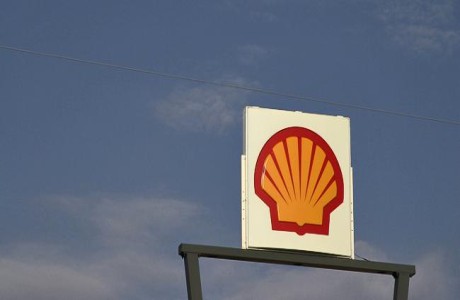Royal Dutch Shell Plc is enlisting the help of expert independent explorer Tullow Oil Plc to find major new oil fields in the Atlantic in a nod to the poor record of big companies in striking gushers.
Tullow said on Wednesday the partnership would seek “transformational” discoveries in “underexplored frontier basins.”
Weaker-than-expected production guidance from Tullow of between 78,000 and 86,000 barrels of oil equivalent per day (boepd) for 2012 weighed on its shares, which closed 4.2 percent lower at 1,394 pence, against a 0.5 percent drop in the STOXX Europe 600 Oil and Gas index .SXEP.
Analysts at Bank of America Merrill Lynch said analysts’ consensus had been for output of 91,000 boepd, while Citigroup said it had forecast 96,000 boepd.
London-based BP Plc and France’s Total SA are among other top-tier players that have pledged to boost exploration spend, as high oil prices raise profit prospects for complex fields previously seen as not worth developing.
The collapse of oil prices to $10 barrel in the 1990s killed the appetite of industry leaders such as Shell and Exxon Mobil Corp to explore in frontier areas.
They focused instead on less risky, but less lucrative, investments, such as developing large known finds.
As a result, in the past decade and a half, independent explorers have led the way in opening up new multibillion-barrel oil provinces in Africa and South America.
Similarly, the oil majors also came late to the shale gas revolution in the United States and were forced to pay big prices for the first movers.
Exxon has spent more than $32 billion (20 billion pounds) snapping up shale gas producers including XTO Corp and Phillips Resources in recent years.
Analysts doubt the majors can quickly end their reliance on acquisitions of oil fields or smaller producers to replace the oil and gas they pump each year.
Shell’s plan to tie up with Tullow could provide a short cut to its effort to boost discoveries, by tapping into Tullow’s expertise and a culture that encourages exploration risk-taking.
BP Chief Executive Bob Dudley said his company could get to the point of replacing its annual production through drill-bit success without tie-ups.
“Given the amount of exploration prospects that we’ve been building into the company … We don’t feel a need to do that,” he told reporters at the launch of his company’s Energy outlook for 2030.
However, he added that even with a doubling of the company’s exploration effort, it would be “later in the decade” before this happened.
Shell and Tullow declined to say which frontier areas in the Atlantic basin they were looking at.
The new venture will build on Shell’s entry into Tullow’s exploration licence in French Guiana in 2009, where the partners announced a significant discovery last year.
Other emerging Atlantic basin frontier regions are offshore Newfoundland and Western Greenland, offshore Sierra Leone and Liberia and around the Falkland Islands. Some companies are also looking at the Caribbean.
Tullow Chief Operating Officer Paul McDade told Reuters that partnering Shell could help Tullow gain access to projects it might otherwise not be chosen for.
Some governments still prefer to have very large oil companies exploring for, or developing, their resources.
Tullow has grown from an industry minnow in the 1990s into Europe’s largest independent oil explorer, with a market value of more than $20 billion, on the back of major discoveries in Uganda and Ghana.
It is also exploring in Ethiopia and plans to drill a well in Kenya, areas which analysts say could emerge as important oil and gas producers.



